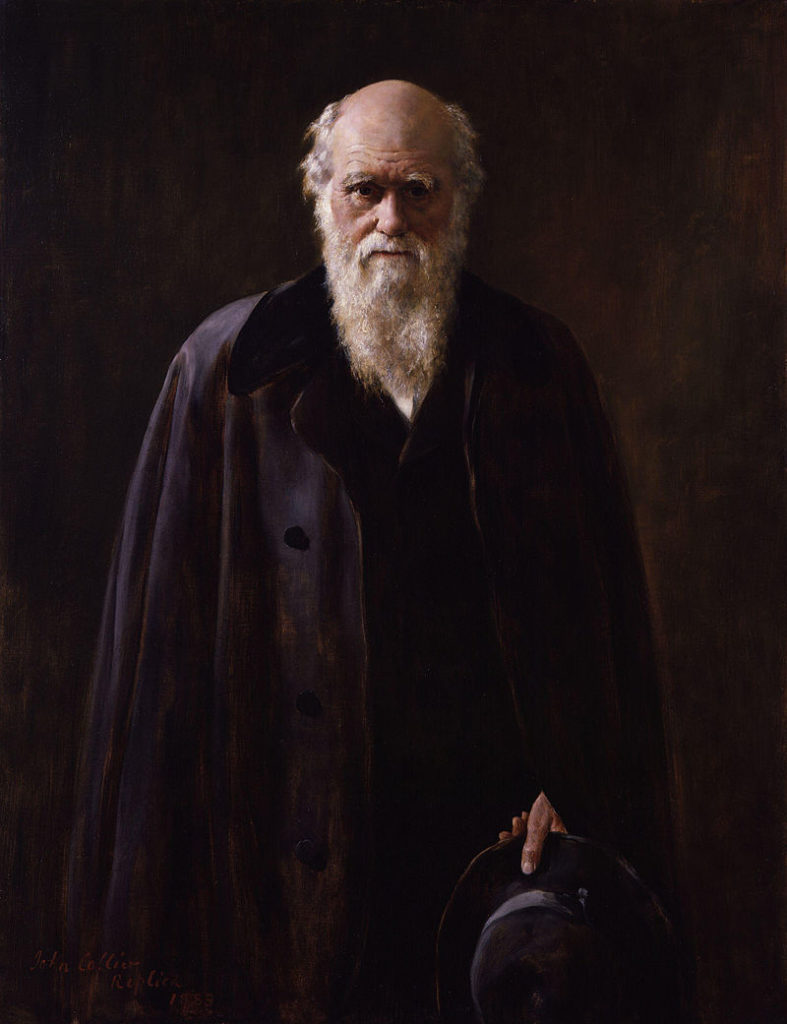
Charles Darwin (1809 – 1882) was an English naturalist and biologist who changed the way we think about life on this planet. In 1859 he published his famous book On the Origins of Species, making the beginning of evolutionary biology and cementing his legacy as the most influential biologist in history.
Charles Darwin was born in Shrewsbury, England, the fifth of six children to his father Robert Darwin and mother Susan Wedgwood. He attended the University of Edinburgh Medical School but quickly neglected his studies and his father sent him to Christ College, Cambridge with the intentions to have him join the clergy. While at those university’s Darwin learned much in the intellectual environment, but little on the topics he was sent to study for. However he was exposed to many free thinkers and a variety of ideas in science, particularly biology and geology.
Darwin was able to put these ideas into practice when he traveled the globe from 1831 – 1836 on the HMS Beagle. It was during and after this trip that he was able to gather a substantial amount of evidence and privately begin to formulate his ideas on evolution by natural selection. Upon Darwin’s return from the trip he was immediately received as a celebrity scientists in British circles and had cemented his career as a scientist.
Over the next twenty years Darwin continued to amass evidence to the original framework that he developed on his Beagle voyage. He was even reluctant to publish his work, in fear of retaliation from the Catholic Church. However he read a letter by Alfred Russell Wallace describing natural selection in similar terms to his and this motivated Darwin to get to work in publishing his work. On July 1, 1858 both Darwin and Wallace presented a joint presentation to the Linnean Society presenting their work on natural selection. It received little attention due to a lack of evidence.
For the next fourteen months Darwin continued to work on his book, and on November 24, 1859 On the Origin of Species by Means of Natural Selection, or the Preservation of Favoured Races in the Struggle for Life was published and immediately sold out of its 1,250 copies. This book was the culmination of Darwin’s accumulation of evidence over the decades.
By the time of Darwin’s death in 1882 most scientists had accepted evolution as a fact. That is a powerful testament to how convincing his arguments and evidence was and is why he is regarded as one of the most influential scientists of all time.